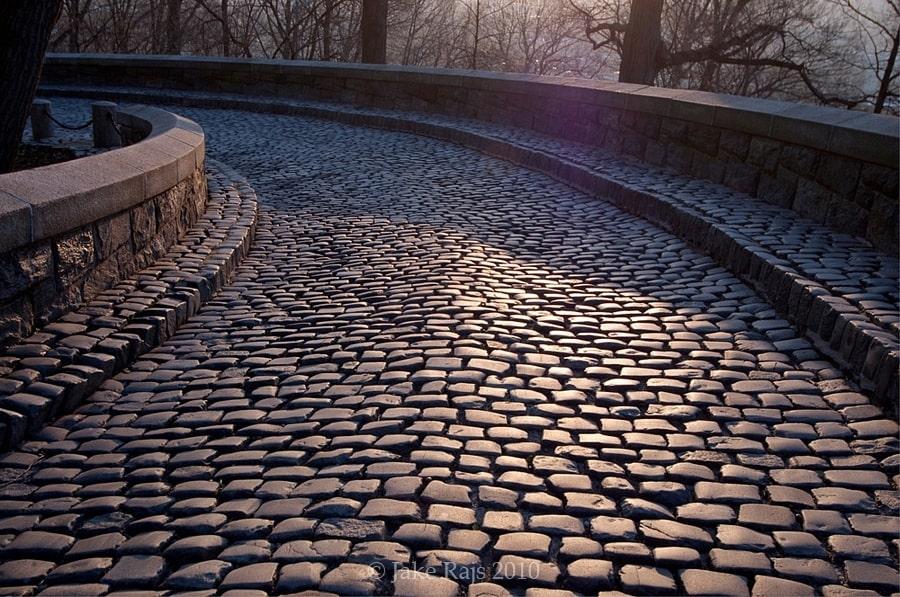Most of us drive everyday, so we take many things in our driving experience for granted. For instance, have you ever wondered “What are roads made of”?
A lot of thoughts and considerations go into how roads are built so that they are durable, functional and safe. Most of us don’t notice or give them any thoughts, however diving into the matter of “What are roads made of?” will reveal unexpectedly interesting findings.
What are roads made of?
Roads and bridges are major and vital infrastructure required for every civilization. They facilitate the movement of goods and services, in addition to travel and commute.

Bigger projects cost more and take more time to design, engineer and built, since they have to take a number of factors into account, such as budget, the local weather conditions, the amount of traffic, and technical constraints specific to each project.
Stone, gravel, cobblestone and granite
The most ancient man-made road discovered is in the present-day Iraq or former Mesopotamia. It’s 4,000 years old and is paved from big slabs of stone. Since then, humans have experimented with a number of materials to make roads better and last longer.
What are roads made of in modern days? After stone, gravel, cobblestone and granite setts were used in making roads, which were then replaced as road making was refined.
Today, asphalt and concrete are the most common materials for paving roads in modernity. The type of material used in making roads depends on the project’s budget and the amount of traffic the road will bear.
Asphalt
Asphalt consists of mixed sand, crushed rock and slag, which stick together like glue thanks to an petroleum-based substance called bitumen. Asphalt roads are darker in colour. Since this type of road is relatively cheap and easy to make while can handle heavy loads but not too heavy, this type of road is very common in populated urban areas.
READ MORE
- 15 Car Terms You Must Know In 2019 – Most Recent Technology Explained
- Cost Of Powering An Electric Car – Is It Good Investment?
Concrete
Concrete roads are made of different forms of cement which act as a binding agent for a mixture of sand and rocks. By using cement, concrete roads are stronger than asphalt roads but more expensive to make and more difficult to pour.
Concrete roads are distinctly lighter in colour compared to their asphalt counterparts.
Due to these characteristics, concrete is often used for making highways to handle heavy loads without the need to “touch up” or maintain too regularly.
Chip seal
Chip seal consists of a layer of tar underneath a layer of gravel. These two layers are steamrolled together, the process of which is pretty easy and cheap. This combination of tar and gravel is also used to fix cracks on asphalt or concrete roads.
Since chip seal roads are weak, they can be found in more remote areas with fewer traffic.
How are roads made?
First, substances like rocks are removed to create a flat surface to better support the road. Then materials are poured or added in layers, which are then flattened and compacted further by the rolling machine.
How roads are made has a long history and has seen continuous improvements in durability and safety. Learn more interesting facts about the automotive industry and the most useful driving tips to be an informed and skilled driver.


